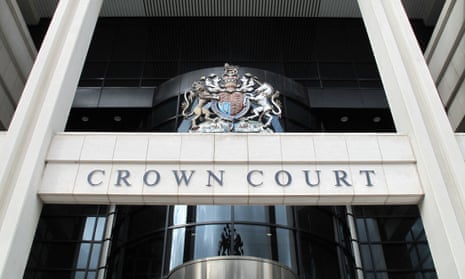Members of the public will have the right to challenge sentences given to criminals who have been convicted of informing terrorists that they are under investigation, the government has announced.
Nine terror offences have been added to the unduly lenient sentencing (ULS) scheme, which gives anyone the power to ask the attorney general to review a sentence. The nine include convictions for flouting terror prevention court orders and hoaxes involving noxious substances.
Under the scheme, cases are reviewed and can be sent to the court of appeal, which then determines whether the sentence should stay the same or be increased.
The latest extension of the programme follows the addition of 19 terror-related offences to the scheme in July, which also covers murder, rape and child sexual abuse convictions.
Under the change, which will take effect on 29 January, sentences to punish those who tip off the subject of a terrorist investigation can be challenged. Punishments given in cases where someone learns of terrorist activity through their trade, profession or employment but fails to report the information to police could also be re-examined.
The extension to the scheme will also cover breaches of anti-terror orders imposed to restrict the activities and movements of suspects. The nine newly added offences include failure to comply with a terrorism prevention and investigation measure (TPIM) and contravening a temporary exclusion order (TEO).
TPIMs are used in cases where someone who is deemed to pose a threat to security cannot be prosecuted or, in the case of foreign nationals, deported. Subjects can be relocated, made to wear an electronic monitoring tag and have limits placed on their use of computers and phones.
TEOs were created to disrupt and control the return of UK citizens suspected of engaging in terrorist-related activity abroad. The orders make it unlawful for the individual to come back without engaging with UK authorities.
Dominic Raab, the justice minister, said: “We keep counter-terrorism powers under constant review. These changes will strengthen our ability to punish and deter those who tip off individuals involved in terrorism, and reinforce the conditions imposed by the authorities on individuals subject to monitoring, supervision or control.”
Last year, a record 141 criminals had their sentences increased under the ULS initiative, although the Ministry of Justice noted that this was a small proportion of the 80,000 cases heard by crown courts.
Jeremy Wright QC, the attorney general, said: “While in the vast majority of cases sentencing judges get it right, the ULS scheme gives anyone the ability to challenge sentences within the scheme they think are too low and I’m pleased that more offences will now be included.”










